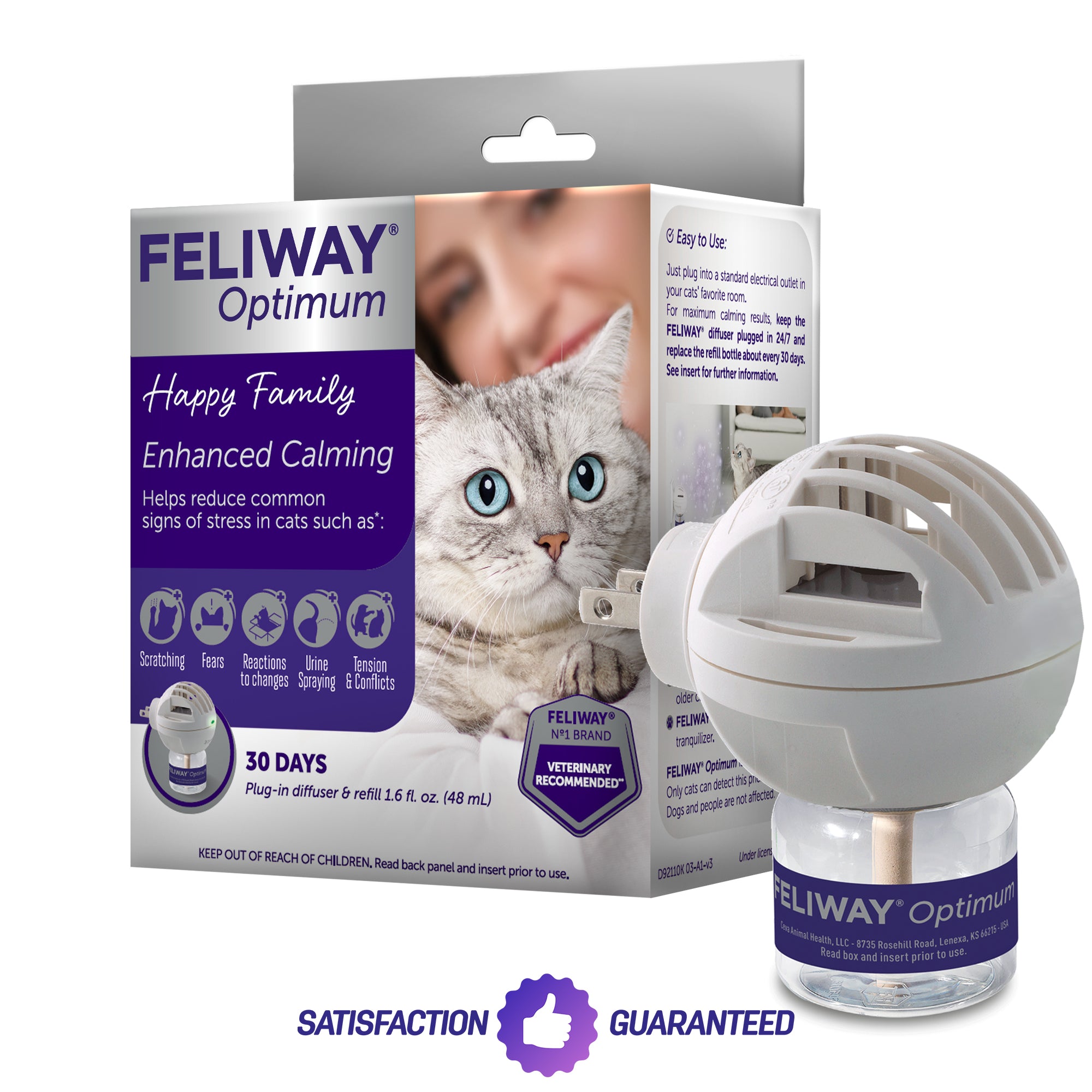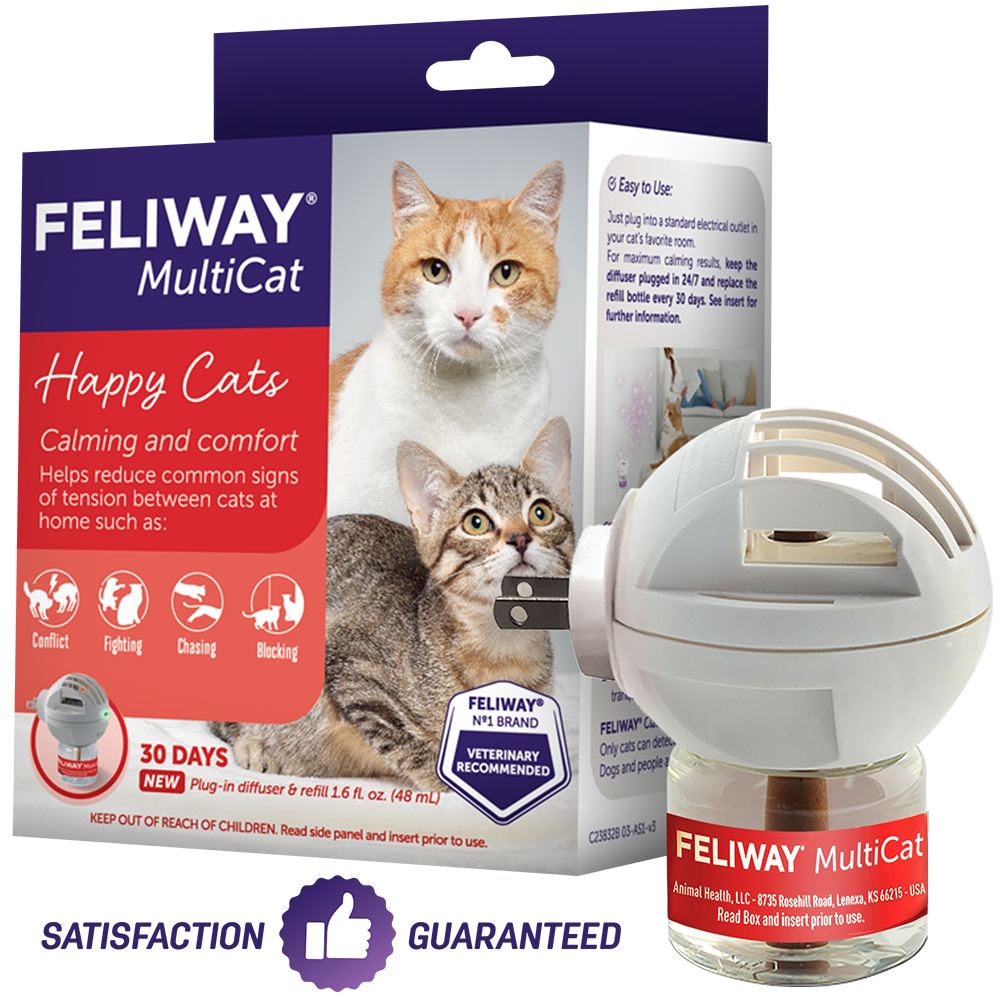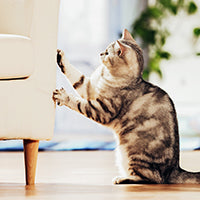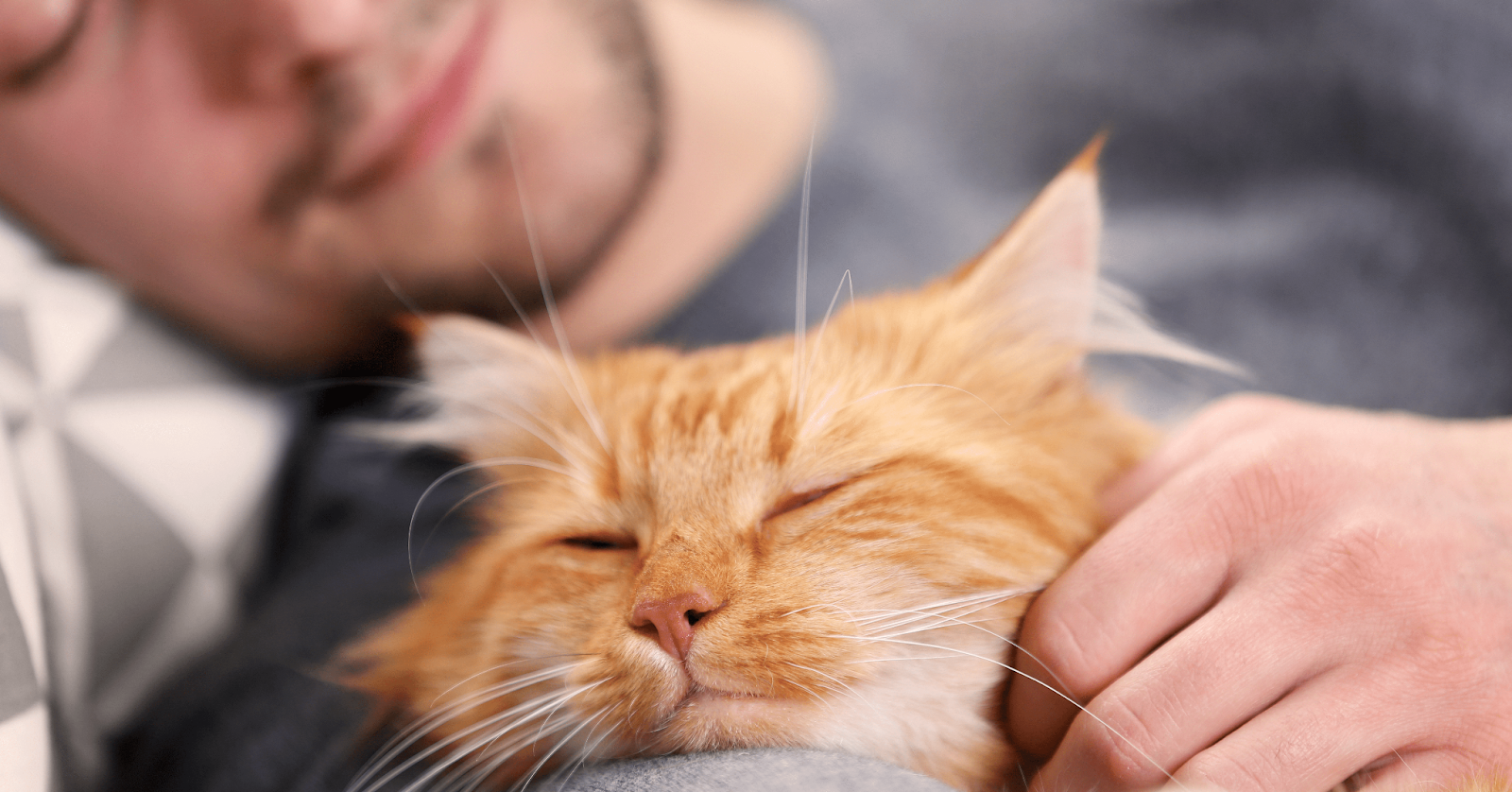How Long Can You Leave a Cat Alone?

Due to the pandemic, we’ve been able to spend a lot more time at home with our cats and, although our feline friends are generally independent creatures, this has had a significant impact on their day-to-day lives.
But now more usual routines are returning, we may have to leave our cats alone for longer periods of time - when we return to work, visit friends and family, or even go away on holiday. So, we have to consider how long our cats can be left alone.
How to Prepare to Leave Your Cat Alone
To make sure your cat will be safe and content while you are away, you need to be prepared.
Daily essentials
- If your cat eats dry food, it will be easier to leave this available in their food bowl without it deteriorating. Wet food will only last for around 4 hours before it starts to deteriorate.
- Access to fresh water is essential – if you are planning to leave your cat for more than a few hours, water in a bowl may become too stale to drink, or it may run out. Cats are fussy about the water they drink, but we do know that they like to drink from flowing water, so you may even consider an automated water fountain – which will keep them very happy.
- A cat’s litter tray should be refreshed every day and the litter changed frequently – if you are leaving your cat for a long period, try leaving more than one tray, otherwise you might find that your cat has found somewhere else to toilet if one litter box is full.
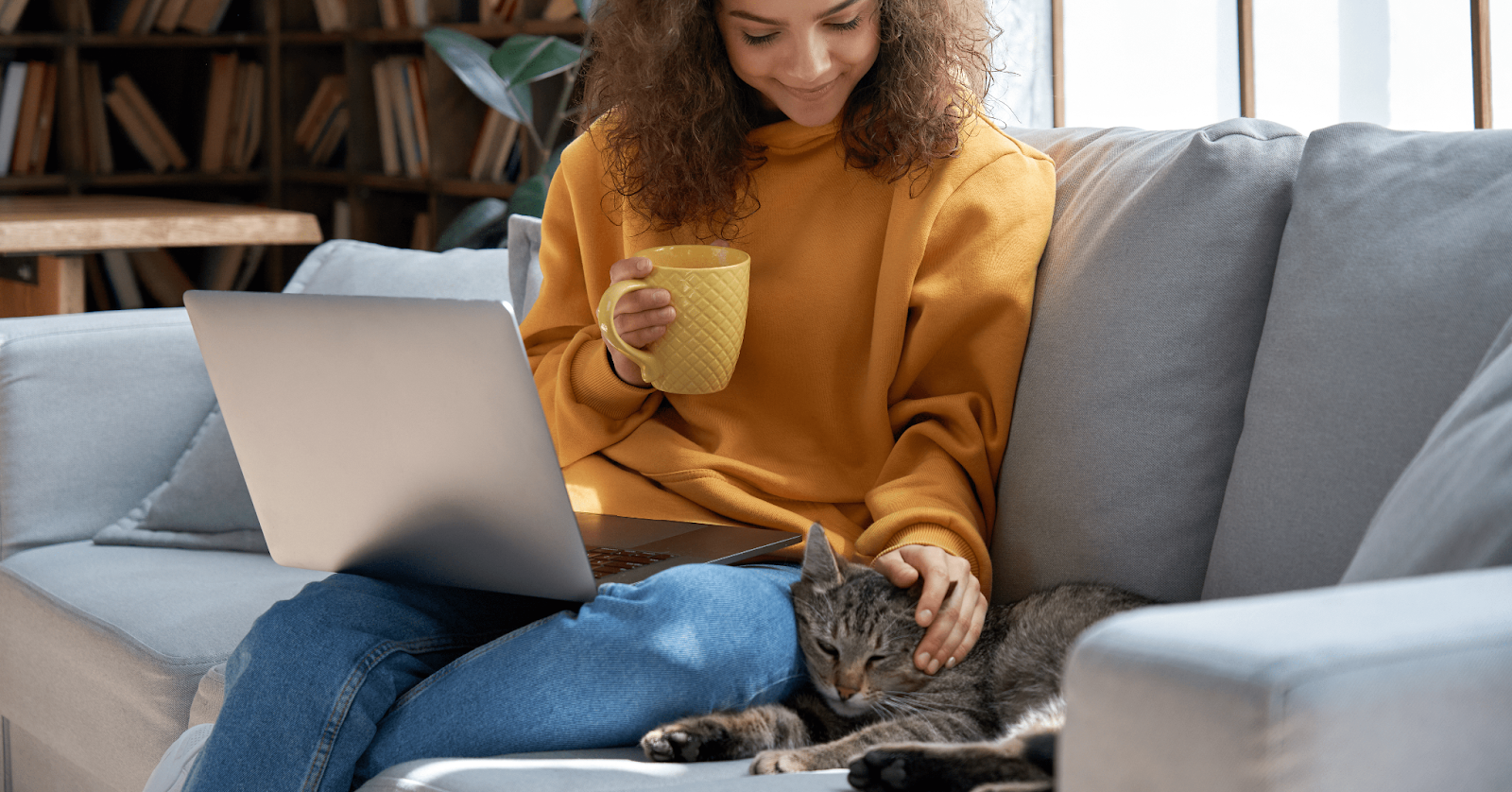
Create a safe and happy environment
It’s important that your cat has everything to hand to keep them happy and stress-free, so:
- Ensure they have access to elevated spots so that they can feel safe when they are having their catnap.
- Use some support – FELIWAY Optimum Diffuser product that provides a 30 days supply of enhanced calming feline pheromones to comfort and reassure your cat during any changes to their routine – ideal for providing support to your cat if you are leaving them alone for a short period of time. Plug the diffuser in a few days before you leave to comfort your cat.
- Place cosy cushions or a blanket on the windowsill so that they can keep a watchful eye on what is going on outside.
- Give them a scratching post so that they can scratch and stretch – this will also help protect your furniture!
- Put all of their necessary resources in the right places – don’t be tempted to move them to another spot, otherwise they will get confused when their food, water and litter tray cannot be found.
- Don’t be tempted to run the washing machine while you are away (unless it is in a closed off space). Cats like a calm environment, so a sudden noise from a spinning machine may spook them and make them anxious.
- Keep the weather in mind. Make sure your cat has access to cool places in the home when the weather is hot, and warm places when the weather is cold.
- If your cat has access to the outdoors, make sure their exit routes are clear. Conversely, if you have an indoor cat, make sure all windows are closed.

Entertainment
- Leave the radio tuned into their favourite station! Did you know that cats find Chopin and Bach relaxing? There are many sources of music that can be tapped into that will keep your cat happy when you are not around – or you may have a favourite playlist that you know your cat enjoys!
- Make sure they have easy access to their favourite toys – but avoid those that have strings or elastic attached. Also to be avoided are feather toys, plastic bags or toys that have small parts that might be swallowed.
- An activity feeder will keep your cat happy for a while – especially when they know there’s a treat to be had!
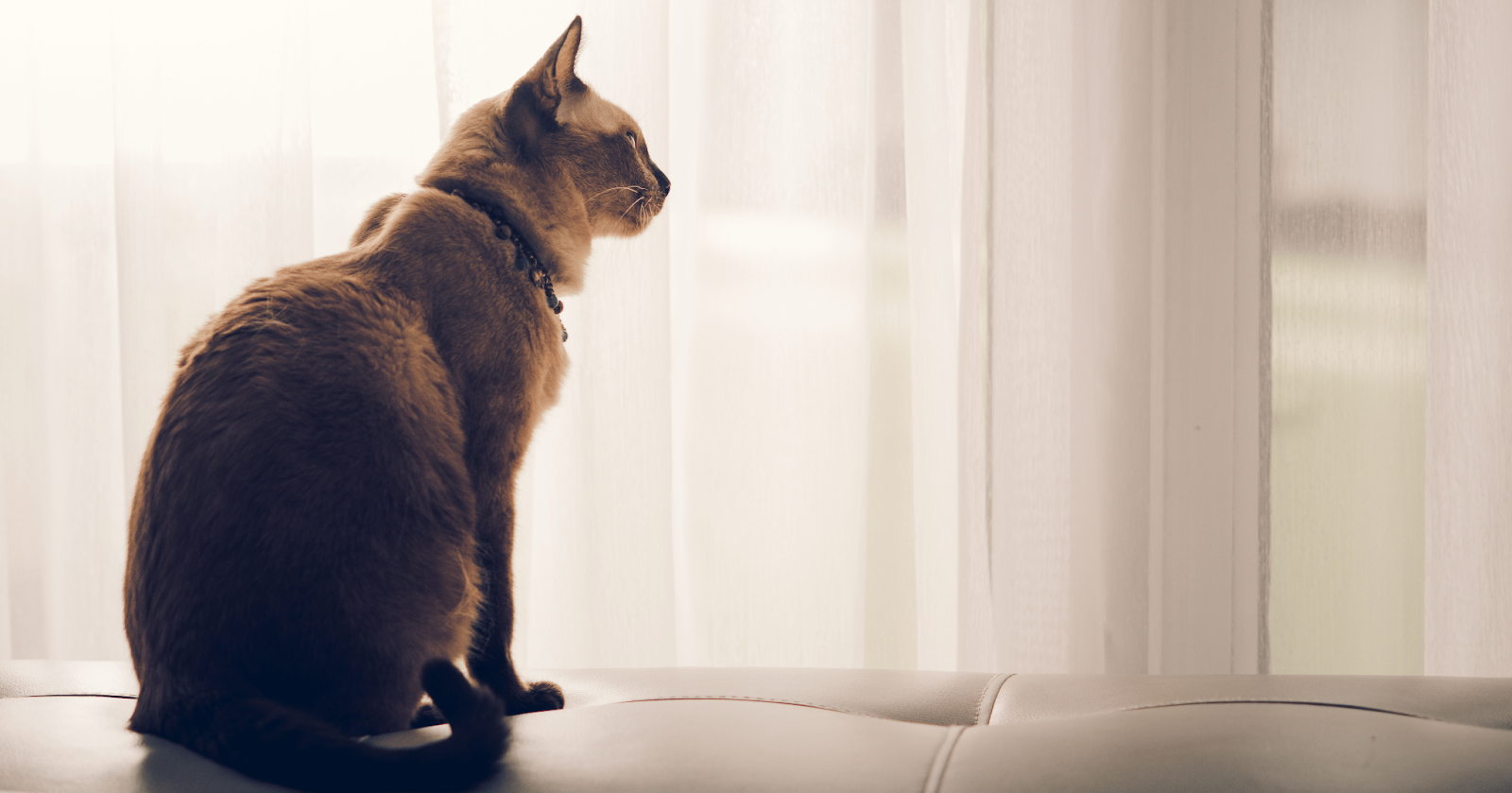
How Long Can You Leave a Cat Alone?
This very much depends on your cat’s personality and how old they are:
Kittens under 4 months old: do not leave for more than 4 hours at a time.
At this age, your kitten will be very energetic and inquisitive, so they should not be left alone for more than 4 hours at a time. In addition to needing regular access to food and water, they need to be supervised in case they get into any mischief! Getting stuck or injured can turn serious quickly for tiny kittens.
Kittens over 6 months old: can be left for around 8 hours on their own
By this age your kitten will have learned to be more independent and have developed their own routine. They should be quite content while you are at work and the kids are at school, as long as they have all of their resources to hand – and there are no obvious hazards that they can get into trouble with.
Adult cats: with resources, can be without you for 24-48 hours
However, this very much depends on the cat, their environment, their diet and, of course, how much they depend on you for companionship and entertainment. Never leave a cat alone for any length of time without fresh food and water resources.
To help adult cats adjust to time alone, try to build up gradually. Always introduce new items, like food/water dispensers, well in advance of leaving your cat alone so you are confident that they can use them comfortably.
Longer trips away
If you are going to be away from home for a longer period of time, you should consider:
- A cat sitter. With clear instructions about your cat’s likes and dislikes and their routine, a cat sitter can be a good option. However, make sure they get to know each other before you leave them alone.
- A cattery. Check that the cattery you choose is licensed and that you get references from other cat owners who have used it. Take your cat’s favourite bed/blanket with them along with toys to make them feel at home.
- Enlist a friendly neighbour to pop in on a regular basis to replenish food and water and change litter trays. If they have time, they may even stay around for a little playtime!
Cats are very flexible creatures and, in the main, enjoy their own company. Never leave your cat alone for long periods if they are unwell, and speak to your vet if you have any concerns.
